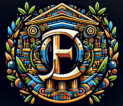Evil and the Evolution of Morality
Evil and Humanity
Evil and morality are thought structures for defining good and bad actions. Definitions of evil vary according to the culture, time, and context of the people who are defining it. An absolute definition is illusive. Many describe it as a supernatural force in our world. Some say that it is led by satan, the opposite of god. In Catholicism, this would refer to lucifer’s betrayal of god and descent into hell. Evil ascribes a certain kind of ignorance, selfishness, neglect, ignorance, and amorality.
Logical Beliefs about how evil exists
There are four different logical possibilities regarding evil, one of which you will fall into. Moral relativism is the belief that morality is shared amongst a group of people, but relative to individuals. That means that each group of people believes themselves to be ethically or morally superior to the others; most philosophers question the idea of an objective morality. It holds that morality is flexible to the cultures that employ it. Most critics of this view claim that this creates a logical conundrum, whereby judgements of morality cannot be applied.
The second possible belief is moral absolutism, where you believe that particular actions are inherently right or wrong and that certain restrictions on behavior shouldn’t be violated. Immanuel Kant’s views on duty and rights can be placed into this category. For instance, if you believe that violence should never be used even in self-defense, than you are morally absolutist about violence being wrong.
Moral universalism, or moral objectivism is the meta-ethical position that some systems of ethics apply themselves universally to a like group of individuals. For instance, all humans should not steal. This is directly opposed to moral relativism or nihilism because it creates a common standard by which all beings should act. This is an Abrahamic belief, meaning it is shared amongst the biggest religions in the world: Christianity, Islam, and also Judaism. This is the view that the United Nations adopted in 1948 after WWII, in Paris.
Amorality is the disregard for morality. This is different from immoral, which refers to the subject views of the agent/doer. Any being that is not able to act with judgement is categorically amoral. Friedrich Nietzsche rejected morality by saying that he had to for non-moral reasons. Moral Nihilism is an offshoot of this, whereby someone would consider killing someone as neither moral or immoral, which is pretty much the direct opposite of moral objectivism.
Now, you understand probably where you fall, but it is important to remember that animals, most particularly domesticated animals with exposure to human values and behaviors can develop a sense of morality as well; just think about your dog or cat. You can also be certain that this exists within animal communities for the sake of well-being for the entire community, but evolving as a sort of natural phenomenon (think of a flock of bird, or school of fish that work together by instinct).
Morality as an Evolution for Social Species
So let’s explore how morality has evolved to become what it is today, certainly led by the virtuous altruism and nihilistic amoral exemplars from the human race.
Carl Jung talked a lot about evil as a shadow-side inherent in each human, but believed to be a separate force from themselves by each individual. People project their own shadows onto others; their insecurities, fears, stresses, etc. He believed the story of Jesus to be an account of God facing his own shadow side.
Morality is certainly an evolutionary lens of humanity; we invented its examination over the course of our evolution. Morality is system of ideas about right and wrong, originating with mythology and evolving most drastically with religion. Most scientists argue that human moral behaviors can be traced through animal behaviors and instincts. Many scientists argue that there is an intrinsic science behind morality, though social scientists general consider morality to be a construct.
Evidence suggests that all life on Earth has a single common ancestor, a small single-celled organism that lived 3.8-3.5 billion years ago. But as we learn more and more about horizontal gene transference, which is the primary mechanism of gene transfer within micro-organisms, we are starting to understand that this single common ancestry might have evolved differently than we currently hypothesize.
This has led to mammals and social societies within animal species with specific hierarchies where each individual knows their place. Social order is maintained by rules of expected behavior and consequences for actions. Higher functioning primates like our closest relatives, chimpanzees and bonobos often reciprocate social behaviors and remembers favors, favorites, preferences, empathy, attachment, bonding, and altruism. Vampire bats reciprocate by sharing blood regurgitation with their bat friends, or those in dire need of feeding. Certain monkeys and dogs refuse to act unless rewarded properly and fairly for their actions.
Chimpanzees lives in groups of about 50, forming complex societies with distinct and unique hierarchies. Paleolithic hominids (2.6 millions years ago to 10,000 years ago) lived in groups of a few hundred individuals. Malcolm Gladwell mentions that humans have a limit of about 50 close friends and 300 in their extended circle, which is of course aided by advancements in technology. As community size increased, morality evolved as a means of control, cohesion, and solidarity. As the number of individuals within communities increased, so did the complexity of these hierarchies and moral systems until things like religions, cults, and more complex societal functions began to emerge.
How are Human Morals Different?
Humans societies have two major differences that separate our societies from primate and higher functioning animal societies. We enforce our moral codes more strictly with punishments, rewards, and reputation building. Humans also have a degree of abstract reasoning and objective judgement that is not present in the animal kingdom.
Morality has evolved so far that it has created a sense of human altruism that is even greater than the urge to pass on genes in many instances. This theory of collective social mind that humans can infer or transfer to each other with high levels of intelligence is an evolution that is displayed in primates, but never as heavily or significantly as in humans. Neither is the altruism that humans display towards the collective.
Psychologists believe that religion may have evolved from morality and used supernatural principles and entities to keep the group cohesive and allow the collective to adapt to the ever evolving needs of the collective with enhanced chances for cohesive survival.
There are two primary expressions and emotions involved with morality: the first is disgust; the second is shame. Both of these contribute to a social punishment system that is very active in the world around us today, especially on the internet.
Religion, Morality, and Evil
Finally, here is a list for each religion, categorizing how it’s doctrine thinks about evil:
- Hinduism – Dharma divides right from wrong with strict systems of morality based on actions.
- Christianity – any thought or action against the will of God is immoral.
- Judasim – evil comes into existence through the actions; humans are responsible for choices.
- Islam – there is no concept of absolute evil. Evil is lack of good, or disrespect of Allah.
- Buddism – Desire is the root of all evil, but more focused on suffering and ignorance.
- Sikkhism – evil evolves depending on one’s location along the path to liberation.
Conclusion
Remember that I am doing my best to be impartial here; if you feel like something is missing please add a comment! Evil is certainly something that has evolved with humanity and continues to evolve today, though I did my best to steer clear of any news on the subject.
This wraps up my discussion on the idea of evil, morality, and the evolution of what is right and wrong. I’m hoping to write my next article about Aristotle his concept of “the good”, if you have anything you want me to mention or discuss, let me know!
References:
Evil and the Evolution of Morality Read More »

